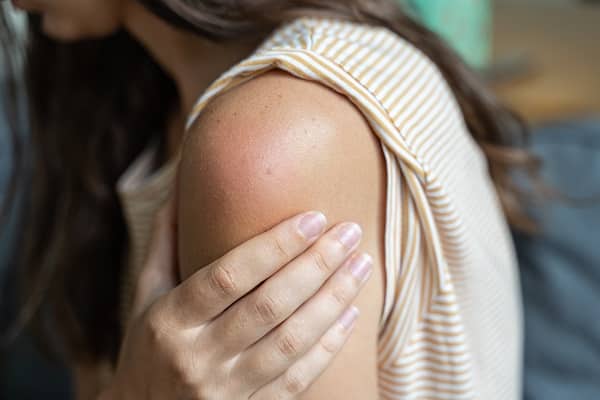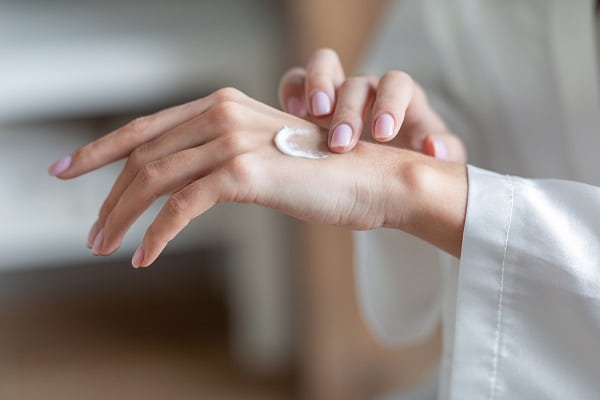Your skin is the first line of defense against the world. It’s constantly exposed to the elements, and it takes a beating. When your skin is stressed, it shows signs of wear and tear. If you’re noticing that your skin is oily or dry, has blemishes or wrinkles, or feels hot or itchy, it’s time to take action! This post will look at some signs that your skin is stressed out and will provide tips on how to help your skin recover!
Why Caring For Your Skin Is Essential
In today’s society, people often equate appearance with success. As a result, many people believe they need to have perfect skin to succeed. However, the reality is that caring for your skin is essential, regardless of your goals or aspirations. The skin is the largest organ in the human body and plays a vital role in protecting us from disease and infection. In addition, the skin helps to regulate body temperature and provides sensation. The skin can become dry, cracked, and susceptible to illness without proper care. Fortunately, there are some simple steps that you can take to care for your skin. These include cleaning your face twice daily, using sunscreen, and drinking plenty of water. By taking care of your skin, you can improve your health and safeguard your appearance.
Acne Breakouts

Everyone knows that feeling of dread when you catch a glimpse of your reflection and see a huge pimple staring back at you. Acne breakouts are never fun, but they may be more than just a nuisance. Acne breakouts may be a sign that your skin is stressed out. Numerous factors can lead to skin stress, including pollution, lack of sleep, and even diet. When stressed out, the skin produces more oil, which can lead to clogged pores and breakouts. In addition, stress can weaken the skin’s barrier function, making it more prone to inflammation. So if you’re noticing more breakouts than usual, it may be time to take a closer look at your lifestyle and see if there are any changes you can make to reduce stress. Taking care of your skin can help to reduce breakouts and promote a healthier, more balanced complexion.
Hives

Your skin is your body’s largest organ, and it’s tough enough to take a beating daily. But sometimes, even the strongest of skin needs a little help. When your skin is stressed out, it can show up as hives. Hives are raised, red bumps that can appear anywhere on the body. They can be itchy and uncomfortable, often indicating that something is off balance. Many things can cause hives, including allergies, infections, and stress. But no matter the cause, hives signify that your skin is struggling to cope. If you’re experiencing hives, it’s important to listen to your body and give your skin the care it needs. By doing so, you can help to reduce stress and promote healing.
Redness

Redness of the skin is often associated with irritation, sunburn, or other forms of trauma. However, redness can also signify your skin is stressed out. Just like the rest of your body, your skin can experience stress from both internal and external factors. Internal stressors include hormonal imbalances, poor diet, and lack of sleep. External stressors include exposure to pollution, extreme weather, and harsh skincare products. When your skin is stressed, it produces more inflammation-causing chemicals called cytokines. These chemicals cause the blood vessels in your skin to dilate, resulting in the telltale redness. In addition to causing redness, it may also cause rosacea flare-ups which can be uncomfortable and unsightly. If you’re noticing more redness than usual, it’s time to take a step back and assess your lifestyle. Reducing stress can help improve your skin’s appearance and promote a healthy balance.
Dry Skin

Most people think of stress as something mental or emotional. However, it’s also important to remember that physical stress can affect your body – including your skin. Another way to tell if your skin is stressed out is if you’re experiencing dryness. This can be due to several things, including exposure to wind and cold weather, hot showers, and even indoor heating. If you find that your skin is dry and flaky, it’s important to take steps to care for it gently. This means using products that are hydrating and non-irritating and avoiding harsh cleansers or scrubbing too vigorously. Remember, your skin is your body’s largest organ, so it’s important to treat it carefully. By taking these steps, you can help your skin to recover from the effects of stress.
Loose Skin

When your skin is stressed out, it’s not just a cosmetic issue. It’s a sign that your whole body is under stress. And one of the most common signs of stress is loose skin. When you’re stressed, your body produces more of the hormone cortisol. This hormone tells your body to store more fat and interferes with collagen production. Collagen is what gives your skin its elasticity, so when there’s less of it, your skin becomes loose and saggy. Loose skin can also be from dehydration or sun damage. So if you’re noticing some extra saggy skin, take some time to relax and take care of yourself. Your skin will thank you for it! And if the problem persists, it is best to see a dermatologist.
Dull Skin

Finally, when skin is stressed out, it loses its ability to regenerate and repair itself. As a result, the complexion becomes dull and uneven. In extreme cases, the skin may become thin and fragile, leading to premature aging. Fortunately, there are some ways to help relieve stress and improve the health of your skin. For starters, cleanse your face twice a day with a gentle cleanser. Exfoliating regularly will also help to remove dead skin cells and promote cell turnover. Lastly, moisturize regularly to keep your skin hydrated and supple. Following these simple steps can help reduce stress and restore your skin’s natural radiance.
Be Mindful Of The Signs Your Skin In Stressed Out!
There are many different signs that your skin is stressed out. If you’re noticing any of these changes in your skin, it’s important to take steps to reduce stress and promote a healthy balance. Remember, your skin is an essential part of your body, so it’s important to take care of it! By following these simple tips, you can help improve your skin’s health and promote a youthful appearance. And if all else fails, be sure to consult your dermatologist. They will be able to help you get to the bottom of your skin stress and get you on the path to clear, healthy skin!


